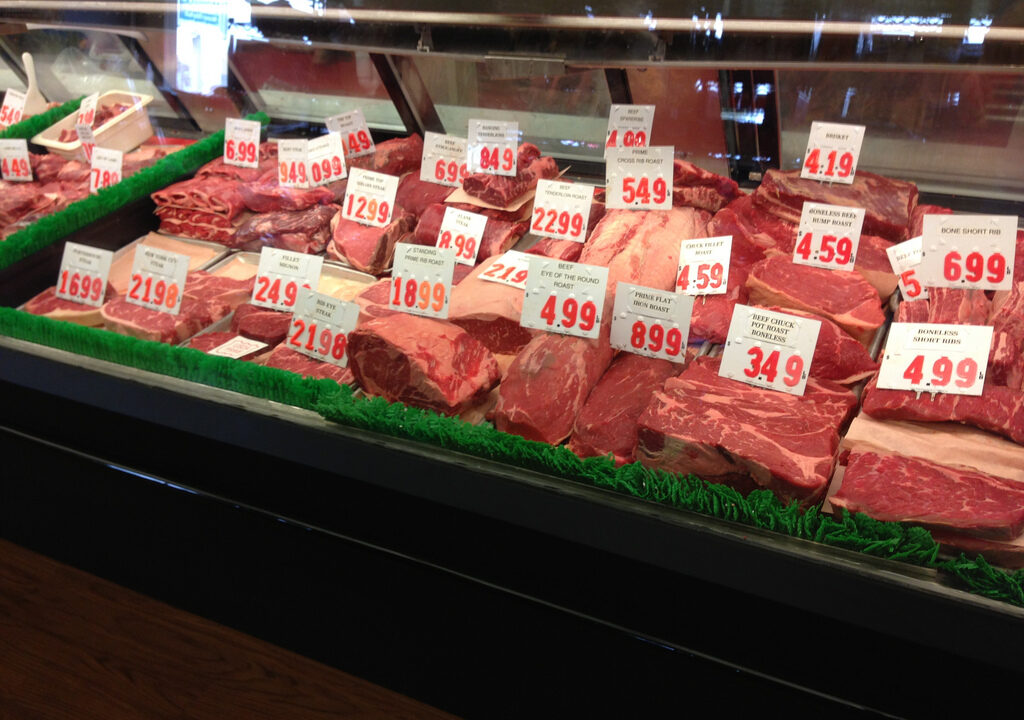Meat Industry Ireland’s (MII) claim that beef farmers get a 63% share of the retail price for beef products has been labelled as “outrageous spin” by the Irish Cattle and Sheep Farmers’ Association (ICSA).
Edmond Phelan, the association’s president, also called for an “urgent” EU audit of the beef supply chain to determine “who gets what”.
Commenting on the figures provided by MII, Phelan said that: “Assertions like this are akin to sitting on a powder keg.
Many farmers will see the MII figures as outrageous spin and this will only serve to infuriate farmers further.
Phelan argued that the figures currently being posited from different sources cannot be relied on for an accurate reflection.
“ICSA was the first organisation to suggest that the fifth quarter was worth about €150 per animal back in 2015. Subsequent data suggests that the figure is higher. We need transparency around this,” he insisted.
Similarly, on the issue of retail price, Phelan warned that the basic figures don’t tell the whole story.
Moreover, the starting point seems to be an average retail price of €8.97/kg but it must be pointed out that such figures are very limited when you look at all the variations in terms of markets.
“The figures are also potentially distorted by excessive use of beef as a loss leader in order to lure in customers to retail multinationals who then profit on sales of other products,” he added.
‘Fake burgers’
“Questions must also be asked about how some supermarkets are now charging €7 for two fake burgers when they have spent years telling us that consumers will not pay any more than €10 for two steaks,” said the ICSA president.
“How can supermarkets justify selling fake burgers at a price in excess of €30/kg when genuine beef burgers are being sold for around €8.55/kg?” he asked.
A genuine beef burger is priced at less than one-third the price of a fake burger, even though the fake burger has one third more fat, almost double the salt content and less protein than a real burger.
Phelan explained: “The main ingredient in a real beef burger is 93% beef. The single largest component of the fake burger is pea protein isolate at 18%, and then a long list of ingredients not readily recognisable, such as modified corn starch, methyl cellulose and maltodextrin.”
He continued: “How has this been allowed to happen? Is it a failure of marketing or a stunning indictment of how Irish meat processors have consistently allowed retailers to undermine beef to consumers while farmers take all the pain?”
‘Full transparency’
According to Phelan, full transparency in the beef chain “can only be achieved with an EU-level auditor tasked with analysing and publicising who makes the profit from beef”.
“Farmers are on their knees in terms of income and this is the only way to expose retailers or processors who take excess margins from the food chain. If MII wants its members to be taken seriously, then the practice of operating secretly behind unlimited company structures where profits are deliberately concealed cannot continue,” he concluded.
